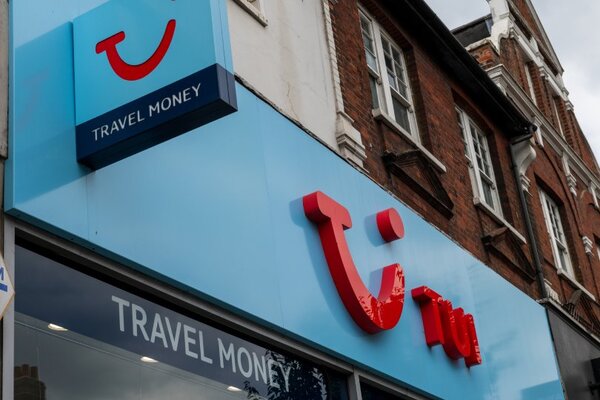Tui starting to reap rewards of new dynamic strategy, chief exec insists
 Gary Noakes
Gary NoakesTui is beginning to reap the rewards of its investment in dynamic packaging and efforts to increase its geographical spread, its chief executive believes.
Sebastian Ebel, speaking on Wednesday (14 August) shortly after Tui revealed its third-quarter results, said app-based expansion and dynamic packaging was allowing Tui to sell in new markets, while investment in Tui’s hotel brands was bringing new destinations to its clients.
During Tui’s third quarter, Tui saw dynamic packaging sales increase by 15% year-on-year, with Ebel labelling it “a big driver for the future”. Ebel said it would enable the brand to sell in eastern and southern Europe and the Americas.
Going global ’nothing new’
Another plank of Tui’s expansion is its hotel business, with its Riu brand poised to open in Chicago – its tenth city property. “Tui is moving more and more outside Europe – we now have our first Robinson Club in Vietnam,” Ebel added.
Ebel described Tui’s latest hotel brand, The Mora, which has just opened its first property in Zanzibar, as a “six-star” product, one aimed firmly at the leisure market.
He said Tui was developing “clusters” of business in new destinations. Africa is a focus, with Cape Verde now receiving daily flights, while Zanzibar, Kenya and Tanzania are other areas of interest. “I very much believe in Africa,” he said. “Going global is nothing new for us, what is new is that we are building global platforms.”
The Middle East situation has impacted Tui, with cruises particularly affected, he said. Setbacks have included rerouting sailings around the Horn of Africa to avoid the Suez Canal.
Ebel said that while this was a “major cost impact”, cruise performance had been “really outstanding”, with prices up 7% and near-100% loads. “It was quite a surprise how much interest there was in the Africa routes,” he said.
Turning to the Middle East, Ebel said that while Jordan, Lebanon and Israel were currently “not really existing any more for major tourism”, Egypt was an exception.
“There was an impact [there] for three or four weeks, but on the other hand, the product is outstanding; it’s really price attractive and a safe country, so after four weeks it normalised."
’Very late’ lates market
Ebel said the collapse of rival FTI, Germany’s third biggest operator, had not immediately benefited Tui. “It is a different market segment; we are four- to five-star,” he said, adding FTI customers who did not receive refunds were unable to pay for another holiday this year. Ebel predicted “pent-up demand” from them for next year.
Tui said the lates market from August to October was proving “very strong”. “There was a slowdown because of the Olympics and the Euros, but overall, it is very strong," Ebel stressed. "It is very late, it’s about the next week or next day." Ebel added Tui’s shift towards digital channels was benefitting it in lates.
“What is really important is that two years ago, we were a traditional wholesaler," he continued. "Now we have a direct link to hotels and other channels, and this gives us the benefits of dynamic packaging – today, we have opened Ryanair sales in Germany and central Europe.”
Looking ahead, total 2024 revenue is expected to increase “by at least” 10% year-on-year from last year’s €20.67 billion, with profits expected to rise “by at least” 25% to €977 million. Tui plans to grow profits by between 7% and 10% a year for the next few years. “We are very confident we can do that,” Ebel said.
Chief finance officer Mathias Kiep described Q3, the three months to the end of June, as “a really very good quarter”. “The trend to spend on holidays is unchanged,” he said, adding all markets, including the UK, had contributed to a 37% increase in profit.
’Increasingly competitive market’
Analyst Julie Palmer, a partner at business advisory firm Begbies Traynor, said: “Tui’s Q3 results prove the travel sector is more resilient than some corners of the market thought it could be this summer as price increases across the sector resulted in some weakness in demand.
"That’s not the case at Tui where customer demand remained resilient throughout the period. This meant that even the airline division was able to offset increased input costs thanks to improved pricing and higher volumes.
"Looking ahead, Tui will need to ensure it adapts to changing consumer preferences, taps into emerging travel trends and capitalises on any upturn in market conditions if it is to truly take off in an increasingly competitive market.”
Sign up for weekday travel news and analysis straight to your inbox

Gary Noakes
Supplier Directory
Find contacts for 260+ travel suppliers. Type name, company or destination.















